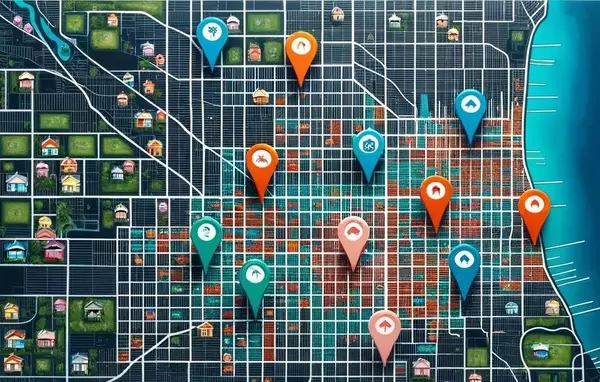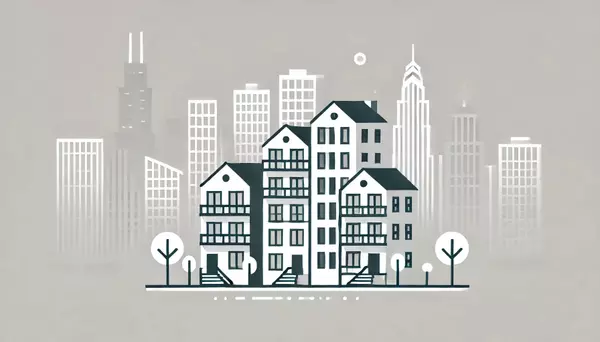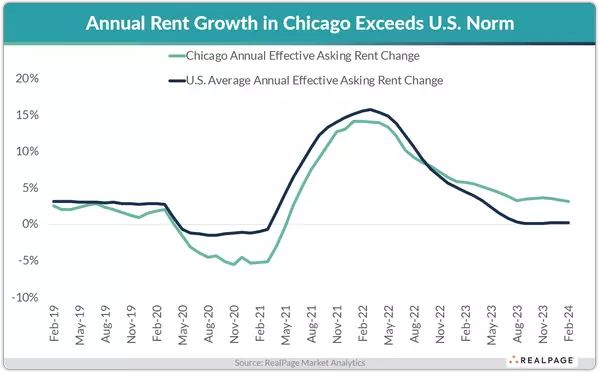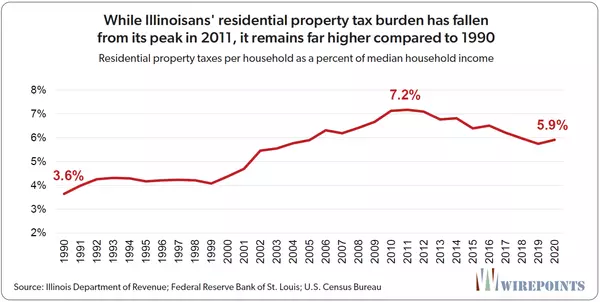The Role of Technology and AI in Shaping Real Estate in 2025

The real estate industry has always been a reflection of broader societal trends, and in 2025, technology is at the forefront of its transformation. From artificial intelligence (AI) powering property searches to blockchain enhancing transactional security, advancements in technology are redefining how buyers, sellers, and agents interact with the market. These innovations promise greater efficiency, transparency, and convenience, but they also bring challenges that require careful consideration.
AI-Powered Property Searches: Smarter, Faster, More Personalized
AI has revolutionized how buyers find homes. Traditional property searches relied on users filtering listings manually, but AI algorithms now analyze preferences, past searches, and behavior to deliver highly personalized recommendations. Buyers can input specific requirements—from the number of bedrooms to proximity to schools—and receive tailored suggestions almost instantly.
Platforms like Zillow and Redfin have integrated AI to predict market trends, estimate property values, and even identify underpriced homes. This empowers buyers to make informed decisions while saving time. For agents, AI tools streamline client interactions by providing insights into buyer preferences, enabling them to focus on properties with the highest likelihood of a match.
Virtual Reality (VR) and Augmented Reality (AR): Transforming Property Tours
Virtual reality has become a game-changer in real estate, especially for remote buyers. VR allows potential buyers to take immersive, 3D tours of properties from anywhere in the world. This technology not only saves time but also eliminates the need for multiple in-person visits, making the process more efficient for both buyers and agents.
Augmented reality further enhances the experience by enabling buyers to visualize renovations or furniture placement within a space. For sellers, these tools attract tech-savvy buyers and make properties stand out in a competitive market. Developers are also leveraging VR to showcase pre-construction projects, giving buyers a realistic sense of the final product.
Blockchain: Securing Real Estate Transactions
Blockchain technology is addressing one of the most critical aspects of real estate: transaction security. By creating a decentralized ledger, blockchain ensures that every step of a transaction is transparent and tamper-proof. This reduces the risk of fraud, simplifies title transfers, and streamlines processes that traditionally involved multiple intermediaries.
Smart contracts, powered by blockchain, are automating tasks like escrow management and contract execution. These innovations not only save time but also reduce costs for buyers and sellers. As trust in blockchain grows, it is likely to become a cornerstone of real estate transactions in the coming years.
Benefits for Buyers, Sellers, and Agents
The integration of technology and AI in real estate offers a wide array of benefits:
- For Buyers: Greater access to information, personalized recommendations, and time-saving tools like VR tours.
- For Sellers: Enhanced property marketing through virtual tours and data-driven pricing strategies.
- For Agents: Streamlined workflows, better client insights, and the ability to focus on building relationships rather than administrative tasks.
Challenges and Considerations
Despite these advancements, challenges remain:
-
Data Privacy: With AI algorithms relying on vast amounts of user data, ensuring the privacy and security of personal information is paramount. Striking a balance between personalization and privacy will be key.
-
Adoption Barriers: Not all buyers, sellers, or agents are comfortable with new technologies. Education and accessibility will play a crucial role in broader adoption.
-
Cost of Implementation: For smaller agencies or independent agents, the cost of adopting advanced technologies may be prohibitive, potentially widening the gap between large and small players.
-
Regulatory Concerns: As blockchain and AI technologies evolve, governments and regulatory bodies will need to establish clear guidelines to ensure ethical and fair use.
The Future of Real Estate
In 2025, technology is not just a tool but a driving force shaping the real estate industry. AI, VR, and blockchain are enhancing every aspect of the buying and selling process, making it more efficient, transparent, and accessible. As these technologies continue to evolve, their impact will only deepen, paving the way for a future where real estate is more dynamic and inclusive.
For industry professionals, embracing these innovations will be essential to staying competitive. For buyers and sellers, the integration of technology offers new opportunities to navigate the market with confidence. The future of real estate is here, and it’s powered by technology.
Vic Melecio - LPT Realty
Categories
Recent Posts












